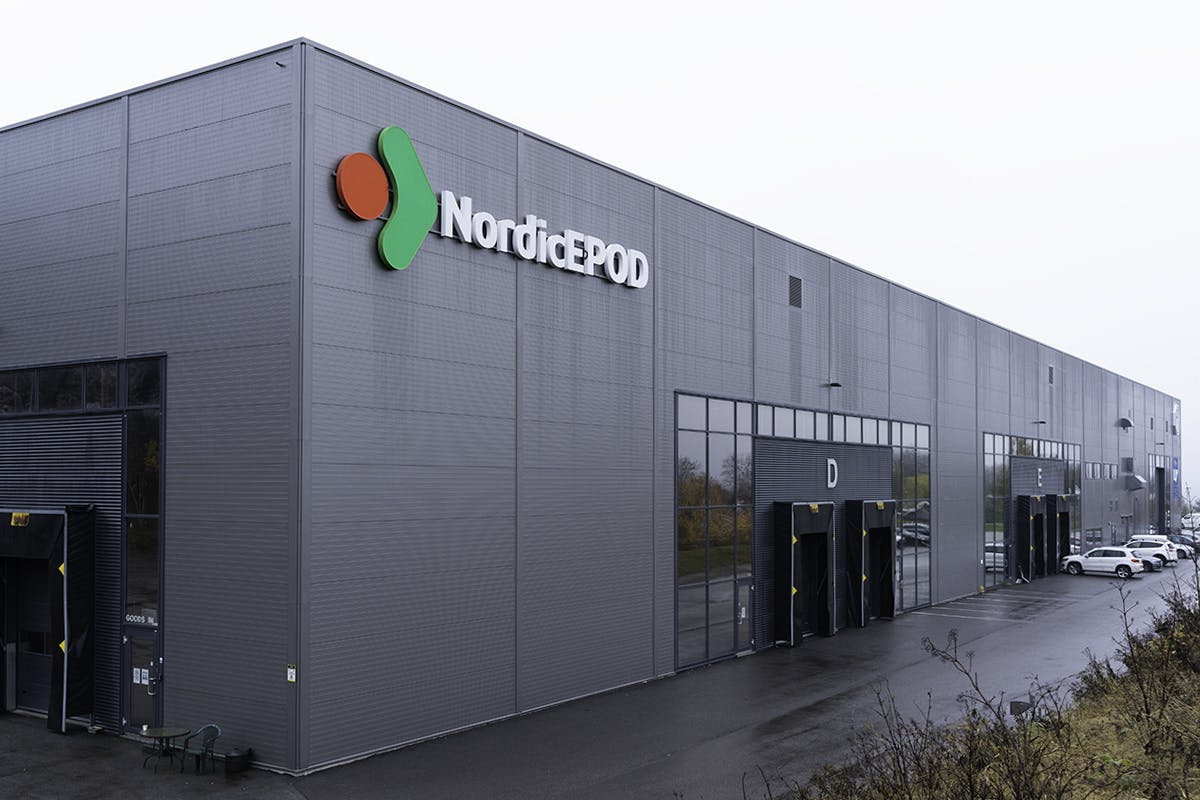Data Centre Business News and Industry Trends
Data Centre Business News and Industry Trends
Data Centre Training & Certification Programs
Data Centres
News
AVK to develop next generation of data centre engineers
As part of its ongoing commitment to developing the data centre industry's future talent pipeline, AVK, a supplier of power solutions for data centres in Europe, has announced the opening of its new AVK Academy.
Located in Lenham, Kent, the AVK Academy is a dedicated centre of excellence designed to provide hands-on training and professional development for engineers at all stages of their careers.
The AVK Academy is a cutting-edge training hub equipped with the latest technology, including full-size Rolls-Royce mtu engines and control system rigs. It offers practical, real-world experience in power generation, helping trainees develop the skills they need to excel in the field.
The power generation industry is evolving rapidly, with growing demands for more efficient and sustainable solutions. To meet these challenges, AVK says that it is essential to cultivate skilled professionals who can drive innovation and maintain the high standards the industry requires. The AVK Academy addresses this need by providing structured training programmes that cater to various experience levels, from complete beginners to advanced engineers looking to enhance their skills.
One of the Academy’s key features is its focus on hands-on learning. Trainees work directly with cutting-edge equipment and technology, gaining invaluable insights into the complexities of power generation. The training is comprehensive, blending classroom instruction with practical exercises that prepare participants for the diverse challenges they will face in the field. This approach not only builds technical expertise but also fosters a deeper understanding of the power generation landscape, setting the foundation for a successful career.
For new talent, the Academy offers a unique entry point into the industry. Its Level 4 intake is specifically designed for those at the beginning of their careers, providing them with foundational training and mentorship. This programme goes beyond technical skills, emphasising the importance of safety, teamwork, and problem-solving - key attributes that are highly valued in our industry. Participants receive a well-rounded education that prepares them not just for their first job but for a long-term career with opportunities for growth and advancement.
“The AVK Academy is more than just a training facility - it represents a strategic investment in the future of our company and the industry, and serves as a powerful tool for attracting new talent to the industry,” says Lynsey Partlow, Service Director, AVK. “By nurturing talent within a controlled, supportive environment, AVK is helping to build a pipeline of skilled professionals who will drive innovation in power generation while creating a clear pathway for education and career development - making the power generation field more accessible and appealing to a diverse range of aspiring professionals.”
“The AVK Academy initiative aligns with AVK's broader mission to deliver innovative and sustainable power solutions that meet the needs of the company's customers, everywhere,” adds Ben Pritchard (pictured above), CEO, AVK.” By equipping AVK's engineers with the skills and knowledge they need at a time of unprecedented industry growth, the company is strengthening its ability to provide reliable, cutting-edge services and creating a culture of continuous learning and development that permeates every level of AVK's organisation.”
Simon Rowley - 8 October 2024
Data Centre Compliance: Standards, Risk & Governance
Data Centres
News
Scalable Network Attached Solutions for Modern Infrastructure
Underinvestment blamed for IT security compliance failures
Companies are failing to achieve continuous IT security compliance because they are allowing their procurement processes to become outdated, according to new research from Vertice, a SaaS and cloud spend optimisation platform.
Vertice surveyed 300 global procurement leaders to rate their business purchasing processes across seven key areas, and to also rate their ability to maintain continuous IT compliance - and discovered a clear correlation between an organisation’s procurement maturity and the businesses’ security.
Vertice's Procurement Impact Report reveals that businesses with an optimised and automated procurement function see a 20% improvement in achieving compliance compared to those with manual and decentralised processes. Alarmingly, only one in six (18%) companies have made the necessary improvements, which include adding automated internal and external compliance checks to procurement request intake forms, along with pre-approved suppliers and intelligently adding suitable compliance stakeholders to the approval process.
Meanwhile the remaining 82% of businesses - whose procurement processes are instead manual, undefined and inconsistent - all struggle to maintain continuous IT and security compliance.
The findings also indicate that procurement leaders are struggling to control shadow IT without intelligent procurement processes in place, with 30% reporting that employees frequently bypass IT and procurement checks to adopt new suppliers. This issue is particularly prevalent in the US, where over one-third (34%) of leaders worry that maverick spending will become increasingly challenging unless their procurement functions are modernised.
Vertice’s report discovered that the US is significantly lagging behind the UK, with almost half (44%) of businesses in the lowest maturity levels, whereas two-thirds (67%) of UK businesses are in the more advanced stages of procurement maturity with more reliance on automation, AI and integrations.
Despite the significant benefits that procurement maturity brings to companies, many leaders are facing a growing number of risks and challenges when establishing high-performing procurement functions. Worryingly, 37% of respondents say that procurement is not a strategic priority versus other initiatives, and 35% say their organisation is not willing to invest in the skills to tackle the issue.
Eldar Tuvey, CEO and Founder of Vertice, says, “Procurement is an important catalyst to business compliance; the secret weapon that often goes unnoticed. Quick, intelligent, integrated processes can equip teams faster, and without compromising safety and compliance. But most procurement departments have been unable to mature their outdated, manual processes, throttling the businesses’ progress and putting compliance at risk.”
Among other benefits, Vertice’s research found that businesses with the most advanced procurement processes are:
• 34% faster to deploy innovative projects• 29% faster in bringing new products and services to market• 27% more efficient than their peers• 22% more effective in controlling budgets
(Compared to those relying on manual, decentralised and reactive processes).
To help procurement teams accelerate their maturity, deliver strategic impact quicker and support compliance better, Vertice today launched Intelligent Workflows, a procurement orchestration tool built to simplify and accelerate purchasing processes, and ease the manual burden on busy procurement teams.
Intelligent Workflows introduces smart, pre-emptive decision-making into the procurement process - including automated pre-approvals and routing, and simplified but accurate compliance - and also granular control and visibility into every ongoing purchase, renewal and intake.
Eldar continues, “Modern procurement teams’ roles are increasingly broad and complex. And in fast-growing or rapidly-changing businesses, procurement processes aren’t always keeping up - meaning procurement teams are finding themselves filling in the gaps manually. It’s a step back for procurement when the business is trying to make leaps forward.
“Intelligent Workflows is the boost these teams need. Our new procurement orchestration tool brings automation and intelligence to the purchasing process, by eliminating manual approval routing and re-routing, anticipating bottlenecks, and reducing the daily workload for procurement teams - all while improving control and speed of outcomes.
For more from Vertice, click here.
Simon Rowley - 10 September 2024
Data
Insights into Data Centre Investment & Market Growth
News
Cerabyte secures investment from Pure Storage
Cerabyte, a provider of ceramic-based data storage solutions, has announced a strategic investment from Pure Storage, the IT pioneer that delivers an advanced data storage platform, to help enable sustainable immutable data storage solutions.
Additionally, John (Coz) Colgrove, Founder and Chief Visionary Officer of Pure Storage, joins Cerabyte’s Board of Directors.
Cerabyte’s vision is to store all data virtually forever and preserve today’s digital records for future use through the use of its ceramic data storage technology. With Pure Storage delivering the platform to store, manage, and protect the world's data, this strategic investment in Cerabyte will enable the company to extend this mission further.
“Pure’s investment in Cerabyte and joint partnership will allow us to offer our customers sustainable and immutable data storage solutions that are revolutionising the industry,” says John (Coz) Colgrove, Founder and Chief Visionary Officer, Pure Storage. “By disrupting the archival storage market, we are paving the way for longer lasting and easier to manage long-term storage.”
Cerabyte enables a new tier of accessible, permanent, and sustainable data storage that is projected to extend from petabyte to exabyte-scale data centre racks. The persistent media technology can hold data for extremely long periods of time while consuming no power.
“The complex global needs of zettabyte-scale archival storage have been poorly served with expensive solutions that consume an inordinate share of the world’s available energy,” says John Monroe, Chief Analyst at Furthur Market Research. “The storage industry is ripe for transformative disruption. In concert and conjunction with tape, new technologies such as Cerabyte’s will be required to provide viable and cost-effective solutions to enterprise customers’ crucial challenges with the security, immutability and sustainability (SIS) of their vital data.”
Cerabyte’s ceramic-based data storage does not suffer from bit rot or silent corruption, which threatens data integrity over time. Instead, it provides an immutable record of the original data required in an increasing number of use cases, especially in the era of AI.
“As the industry is heading towards the Yottabyte Era, sustainable data storage — which eliminates the need for data migration and thereby scales down the energy footprint and TCO — will be critical to harness the data tsunami ahead,” notes Christian Pflaum, CEO, Cerabyte. “We are thrilled to partner with Pure Storage to commercialise ceramic data storage and welcome John to our Board of Directors.”
For more from Pure Storage, click here.
Simon Rowley - 30 July 2024
Data Centre Business News and Industry Trends
Data Centre Regulations & UK Compliance Updates
Data Centre Training & Certification Programs
News
Schneider Electric announces new training programme
Schneider Electric has announced the launch of its Schneider Electric Training programme in the UK and Ireland (UK&I).
Schneider Electric’s vision in the UK&I is to create a best-in-class approach to training, unifying specialist academies, courses, and digital campuses into a holistic offering named Schneider Electric Training.
The move is in response to the chronic skills gap in engineering and the vital role that training plays in addressing the growing complexities associated with digital transformation.
The extensive programme covers everything from AI, the automation of machinery and equipment, to innovations in power and energy management, and safety standards and regulations.
Schneider Electric Training will provide customers, partners, and engineers with a single point of access to the vast array of training options and resources available, covering Schneider Electric solutions, industry focused courses, and professional accreditations.
It will be delivered via several specialist academies for in-person courses and a digital campus offering on-demand courses for Continuing Professional Development (CPD) via the mySchneider portal.
Two academies are already up and running, with three more due to be launched by the end of the year.
The Safety Academy in Telford offers a range of Schneider Electric and professional training courses to ensure the safe operation of electrical equipment and site safety, including Competent Person certification and City & Guilds assured Authorised Person training.
The Automation Academy in Coventry offers a comprehensive curriculum covering Schneider Electric’s automation portfolio. It is designed to take students from basic product understanding through to advanced programming of both legacy and current technology, including Programmable Logic Controllers (PLC), Variable Speed Drives (VSD), Human Machine Interfaces (HMI), Motion Control and Robotics.
David Pownall, VP Services at Schneider Electric UK and Ireland, comments, “Organisations are becoming more dependent on their electrical backbone to support operations, digital transformation, automation, and manufacturing. Electrical engineers and their specialist expertise are critical to the installation, safety, and maintenance of this electrical infrastructure.
“There is an urgent need to build skills to embrace new technologies, drive modernisation, improve performance, reduce downtime, and comply with changing safety regulations. Not only that, but training is critical to career enhancement and a key foundation of a positive employee experience, attracting and retaining people when we’re facing a significant skills gap crisis.
“Smarter engineers, equipped with the skills needed today and a clear development path to build expertise for the future, make for smarter businesses.”
For more from Schneider Electric, click here.
Simon Rowley - 30 July 2024
Data
Insights into Data Centre Investment & Market Growth
News
CTERA announces growth investment from PSG Equity
CTERA, a provider of hybrid cloud data management solutions, has raised $80 million (£61.4m) in primary and secondary funding from PSG Equity, a growth equity firm focused on software and technology-enabled services companies.
As part of the transaction, Ronen Nir, Managing Director at PSG, has joined CTERA’s board of directors alongside existing shareholders Benchmark, Bessemer Venture Partners, and Red Dot Capital Partners.
CTERA, named the top Leader and Outperformer in the GigaOm Distributed Cloud File Storage Radar for three consecutive years, combines an edge-accelerated global file system across public and private cloud environments with AI-based ransomware protection and data intelligence services. CTERA is at the core of hybrid cloud initiatives at some of the world’s largest banks, healthcare organisations, global media groups, and government agencies, in deployments that scale to tens of petabytes.
Unstructured data is a critical component of any enterprise storage strategy, representing about 80% of organisational data distributed across branch offices, endpoints, on-premises, and cloud data centres. Within this space, hybrid cloud file storage is one of the fastest-growing segments. According to Gartner, “By 2027, 60% of I&O leaders will implement hybrid cloud file deployments, up from 20% in early 2023.”.
The proliferation of AI technology helps make unstructured data management more crucial than ever before, as data access is needed not only for users and applications, but also for AI workflows. The new enterprise AI platforms depend on timely access to corporate data for training models and for augmented data retrieval to ensure relevance and accuracy.
“We believe CTERA is setting the standard for the modern hybrid data platform, with military-certified security and unparalleled performance,” says Liran Eshel, Founder and Chairman of the Board of CTERA. “The strategic partnership with PSG will enable us to further drive our expansion while delivering top service to our customers, and implement our vision for AI data services.”
“This investment is evidence of CTERA's robust business model and the opportunity it represents,” adds Ronen Nir, Managing Director, PSG. “We are excited to partner with CTERA as it embarks on capturing what we believe will be an inflection point in the hybrid cloud data market, leveraging both organic and inorganic opportunities to strengthen CTERA’s position and deliver even greater value to its customers.”
For more from CTERA, click here.
Simon Rowley - 17 July 2024
Data Centres
Insights into Data Centre Investment & Market Growth
News
Madison River invests in data centre company
JMadison River Capital (MRC), a lower middle market private equity firm, has announced the completion of a $190 million (£146.8m) recapitalisation of and $70 million (£54.1m) equity investment in JDC Power Systems (JDC), a leading electrical systems integrator exclusively serving the data centre market.
This transaction marks MRC's second investment in the past seven months, following its spin out from the family office of Tony James, the former Executive Vice Chairman of Blackstone.
Headquartered in Armonk, New York, JDC specialises in providing technical services and equipment to customers in the data centre market. JDC is an integrator of customer design, engineering, procurement, installation, start-up, commissioning and warranty, for mission-critical power and control systems. The company’s expertise in coordinating with utility power grids minimises the risks of redesigns, delays, or system failures.
"We were drawn to JDC because of its impressive track record of delivering highly technical solutions and innovative products that provide significant competitive advantages in the growing data centre industry," says David Wittels, Managing Partner and President of MRC.
"We are excited to partner with Joe, Richard, and their talented team to support the company's continued growth and enhance career opportunities for its employees," notes Matthew Clancy, Principal at MRC.
"We are delighted to collaborate with Madison River Capital, whose investment acumen and operational expertise will be instrumental in supporting JDC's growth trajectory," adds Joe Mastromonaco and Richard Corbin, Co-Founders of JDC. "We look forward to leveraging MRC's capabilities to better serve our customers and capitalise on the immense growth opportunities in the data centre market.”
As part of the transaction, Kenneth Brown, a Senior Managing Director at MRC, has been appointed Chairman, and Grace Niland has been appointed Chief Human Resources Officer of JDC.
Kenneth has over 20 years of senior executive experience, including serving as a Group President of Roper Industries and in multiple executive roles at Schneider Electric (formerly known as Invensys) prior to joining MRC.
Grace most recently served as Director of Human Resources for Corning, and she previously spent over 25 years with Raytheon Technologies (formerly known as United Technologies Corporation) in various human resources leadership roles.
Kenneth and Grace are both members of MRC's seasoned team of operating executives, who bring industry-specific best practices and best-in-class cross-functional expertise to MRC’s portfolio companies. This team also includes Derek Irwin, Jeff Winter, and Jennifer Steeves-Kiss.
Simon Rowley - 12 July 2024
Data
Insights into Data Centre Investment & Market Growth
News
Nasuni announces strategic growth investment
Nasuni, a leading enterprise data platform for modern hybrid cloud environments, has announced a strategic growth investment led by Vista Equity Partners, a global investment firm focused exclusively on enterprise software, data, and technology-enabled businesses. Vista will be joined by TCV and KKR in the new investment, which values Nasuni at approximately $1.2 billion (£940m).
The investment will build on Nasuni’s strong momentum disrupting the legacy storage industry to further accelerate product innovation and commercial expansion in the global hybrid cloud market. Further terms of the transaction were not disclosed.
“At Nasuni, we care first and foremost about the success of our customers, partners, and employees,” says Paul Flanagan, CEO of Nasuni. “We are maniacal about our commitment to delivering quality in every aspect of our business and interaction with our customers. This investment and our strategic partnership with Vista, TCV, and KKR will allow us to build upon that commitment, scale with purpose and continue to innovate as we look to take Nasuni to the next level.”
Nasuni’s success to-date includes award winning technology, top decile customer retention rates, industry leading NPS scores, and a consistent 30% growth rate in a market that is rapidly expanding with the advent of hybrid cloud and AI. Nasuni’s data platform is used by over 850 companies spanning 70 countries, and is in use by some of the largest enterprises in the manufacturing, consumer goods, and energy industries.
“Nasuni’s platform offers a highly differentiated approach to consolidating, protecting, and managing data at scale with performance that is critical to supporting AI applications and other high-volume data use-cases,” adds Martin Taylor, Co-Head of Vista's Foundation Fund and Senior Managing Director. “We are thrilled to partner with the Nasuni team as they work to help businesses optimise their expanding and complex data needs with solutions that are fast, secure and highly cost-effective.”
BofA Securities served as the exclusive financial advisor and Goodwin Proctor LLP served as legal advisor to Nasuni. Kirkland & Ellis LLP served as legal counsel to Vista and TCV. KKR is making the investment through its Next Generation Technology III Fund.
For more from Nasuni, click here.
Simon Rowley - 10 July 2024
Data Centres
Insights into Data Centre Investment & Market Growth
News
NordicEPOD secures investment from Eaton and CTS Nordics
NordicEPOD, a manufacturing firm that specialises in the fabrication and integration of standardised power modules designed for the data centre industry, has successfully secured a strategic commercial investment from both CTS Nordics, a dedicated data centre design and build company, and Eaton, the global intelligent power management company.
NordicEPOD helps reduce the complexity, cost and lead times associated with the construction of new data centres, which is vitally important for its customers as the industry undergoes surging growth. Each EPOD, built to the same standard design, contains all the critical power, backup, cooling and control systems, such as Uninterruptible Power Supplies (UPSs), switchgear and power distribution that can support the supply of up to 2MW of electrical power. The EPOD is engineered and placed between the power grid and the data centre’s critical IT infrastructure that it protects. All EPODs that leave the factory will be fully digitally enabled and receive Level 1 to 3 Commissioning, allowing for superior integration and operations.
Morten Molven, General Manager, NordicEPOD, comments, “We are delighted to be partnering with Eaton. Their global reach and commitment to NordicEPOD will help us to upscale significantly, so that we can manufacture with security of supply and ensure our clients’ project requirements are fully met. Eaton’s current and evolving technology is the perfect fit for our EPOD design.”
CTS Nordics is a dedicated data centre design and build company that specialises in new building design and construction methods. They provide data centre operators in the Nordic region a standardised and rapidly deployable, cost-effective approach for the design, construction and commissioning of data centres.
As a result of this agreement, output from the existing NordicEPOD factory in Oslo will be increased with immediate effect, and a larger factory in Oslo will open in August to service a current orderbook through its capacity of over 500MW of EPODs per year. Plans for a further factory in Europe, at a location yet to be confirmed, are already under discussion.
Ciarán Forde, Vice President, Strategic Accounts and Alliances at Eaton, notes, “NordicEPOD already belongs to our xModular partner programme, and this deal cements that relationship. What is unique is how CTS Nordics and NordicEPOD have aligned to positively disrupt the status quo and drive new levels of value to data centre operators. Both companies were formed to serve, and focus entirely on, the data centre industry. This has shaped how they operate and has resulted in engineered solutions like none other. This is the level of innovation and scale needed to meet the market needs.”
For more from Eaton, click here.
Simon Rowley - 4 June 2024
Data
Data Centre Business News and Industry Trends
Data Centre Security: Protecting Infrastructure from Physical and Cyber Threats
Data Centre Training & Certification Programs
News
Veeam launches cyber resilience education programmes
Veeam Software, a provider of data protection and ransomware recovery products, has announced that new technical training and certification programmes are available through Veeam University, a service which delivers Veeam technical training to IT professionals on-demand anytime, anywhere.
The new online offering is the result of a global partnership with Tsunati, a Veeam-accredited service partner, which is helping to provide on-demand, technical certification training for partners and customers worldwide.
Veeam University says that it offers maximum flexibility and an immersive, engaging learning experience in a self-paced format. Its approach includes clickable labs that can be accessed 24/7, video-based demos, and technical deep dives which allow students to effectively absorb concepts and prepare for real-world cybersecurity and disaster recovery scenarios. Completion of on-demand courses offered through Veeam University qualify learners for Veeam certification exams, including Veeam Certified Engineer (VMCE).
“Knowledge is critical in a world where every organisation is facing cyberthreats,” explains Mike Blanchette, Vice President, Global Sales Acceleration at Veeam. “Cyber resilience is the marriage of the right technology to protect and recover your systems and data should the worst happen, with the skills and knowledge to configure, build, and run that technology safely.
“Through these new investments in Veeam University, we are preparing people to tackle any cybersecurity challenge they face and enabling cyber resiliency. Our partnership with Tsunati enables us to provide innovative technical training and certification programmes in a flexible format that best suits the learner."
Tsunati is a professional services and integration company specialising in data protection, Cloud computing, and multi-tenant virtualisation. Recognised as Veeam Accredited Service Partner of the Year for 2022, Veeam believes that Tsunati has changed the world of product training, education and certification. Through its proprietary Solution Education Enablement (SEETM) framework, customers receive practical training and the critical knowledge transfer required to effectively implement and maintain cutting-edge data protection solutions powered by Veeam.
"We are thrilled to join forces with Veeam in revolutionising technical certification training for data protection," says Stoney Hall, CEO of Tsunati. "This partnership represents a synergy of our expertise in Solution Enablement Education (SEETM) and Veeam’s industry-leading data protection and ransomware recovery solutions. Together, we aim to empower professionals with the knowledge and skills required to navigate the evolving landscape of data security effectively."
New technical professional training for Veeam partners is available through the Veeam ProPartner portal, while newly updated customer technical education and certification programmes are available separately through Veeam Technical Education Services.
More details on Veeam University can be found at veeamuniversity.com.
For more from Veeam, click here.
Simon Rowley - 29 May 2024
Data Centre Regulations & UK Compliance Updates
Features
Innovations in Data Center Power and Cooling Solutions
News
Sustainable Infrastructure: Building Resilient, Low-Carbon Projects
How data centres can prepare for 2024 CSRD reporting
by Jad Jebara, CEO of Hyperview.
The CEO of Britain's National Grid, John Pettigrew, recently highlighted the grim reality that data centre power consumption is on track to grow 500% over the next decade. The time to take collective action around implementing innovative and sustainable date centre initiatives is now - and the new initiatives such as the Corporate Sustainability Reporting Directive (CSRD) is the perfect North Star to guide the future of data centre reporting.
This new EU regulation will impact around 50,000 organisations, including over 10,000 non-EU entities with a significant presence in the region. The Corporate Sustainability Reporting Directive (CSRD) requires businesses to report their sustainability efforts in more detail, starting this year. If your organisation is affected, you’ll need reliable, innovative data collection and analysis systems to meet the strict reporting requirements.
CSRD replaces older EU directives and provides more detailed and consistent data on corporate sustainability efforts. It will require thousands of companies that do business in the EU to file detailed reports on the environmental impact and climate-related risks of their operations. Numerous metrics being assessed are still widely analysed within additional EU-wide initiatives. For instance, the Energy Efficiency Directive (EED) requires reporting on two Information & Communication Technologies (ICT) within the CSRD Directive – ITEEsy and ITEUsy – allowing for enhanced measuring and insight into server utilisation, efficiency, and CO2 impact.
Given the anticipated explosion in energy consumption by data centres over the next decade, CSRD will shine a spotlight on the sustainability of these facilities. For example, the law will require organisations to provide accurate data for both greenhouse gases and Scope 1, 2 and 3 emissions.
The essential metrics that data centres will need to report on include:
Power usage effectiveness (PUE) – measures the efficiency of a data centre’s energy consumption
Renewable energy factor (REF) – quantifies the proportion of renewable energy sources used to power data centres
IT equipment energy efficiency for servers (ITEEsv) – evaluates server efficiency, focusing on reducing energy consumption per unit of computing power
IT equipment utilisation for servers (ITEUsv) – measures the utilisation rate of IT equipment
Energy reuse factor (ERF) – measures how much waste energy from data centre operations is reused or recycled
Cooling efficiency ratio (CER) – evaluates the efficiency of data centre cooling systems
Carbon usage effectiveness (CUE) – quantifies the carbon emissions generated per unit of IT workload
Water usage effectiveness (WUE) – measures the efficiency of water consumption in data centre cooling
While power capacity effectiveness (PCE) isn’t a mandatory requirement yet, it is a measure that data centres should track and report on as it reveals the total power capacity consumed over the total power capacity built.
If not already, now is the time to ensure you have processes and systems in place to capture, verify, and extract this information from your data centres. We also recommend conducting a comprehensive data gap analysis to ensure that all relevant data will be collected.
It’s important to understand where your value chain will fall within the scope of CSRD reporting and how that data can be utilised in reporting that’s compliant with ESRS requirements. For example, reports should be machine-readable, digitally tagged and separated into four sections – General, Environmental, Social and Governance.
While the immediate impact of CSRD will be in reporting practices, the hope is that, over time, the new legislation will drive change in how businesses operate. The goal is that CSRD will incentivise organisations such as data centre operators to adopt sustainable practices and technologies, such as renewable energy sources and circular economy models.
Improving sustainability of data centres
Correctly selecting and leveraging Data Centre Infrastructure Management (DCIM) that offers precise and comprehensive reports on energy usage is a paramount step in understanding and driving better sustainability in data centre operations. From modelling and predictive analytics to benchmarking energy performance - data centres that utilise innovative, comprehensive DCIM toolkits are perfectly primed to maintain a competitive operational advantage while prioritising a greener data centre future.
DCIM modelling and predictive analytics tools can empower data centre managers to forecast future energy needs more accurately, in turn helping data centres to optimise operations for maximum efficiency. Modelling and predictive analytics also enables proactive planning, ensuring that energy consumption aligns with actual requirements - preventing unnecessary resource allocation and further supporting sustainability objectives.
Real-time visibility of energy usage gives data centre operators insight into usage patterns and instances of energy waste, allowing changes to be made immediately. Ultimately, eliminating efficiencies faster means less emissions and less energy waste. In addition to enhancing operational efficiency, leveraging these real-time insights aligns seamlessly with emission reduction goals – supporting a more sustainable and conscious data centre ecosystem.
Utilising the right DCIM tools can also reduce energy consumption by driving higher efficiency in crucial areas such as cooling, power provisioning and asset utilisation. They can ensure critical components operate at optimal temperatures, reducing the risk of overheating and preventing energy wastage. In addition to mitigating overheating and subsequent critical failures, utilising optimal temperature tools can also improve the lifespan and performance of the equipment.
The right DCIM tool kit enables businesses to benchmark energy performance across multiple data centres and prioritise energy efficiency – while also verifying the compliance of data centres with key environmental standards and regulations like CSRD. Cutting-edge DCIM platforms also enables data centres to correctly assess their environmental impact by tracking metrics such as power usage effectiveness (PUE), carbon usage effectiveness (CUE) or water usage effectiveness (WUE). These tools facilitate the integration of renewable energy sources - such as solar panels or wind turbines - into the power supply and distribution of green data centres.
As sustainability continues to move up the corporate agenda, expect to see greater integration of DCIM with AI and ML to collect and analyse vast quantities of data, such as sensors, devices, applications and users. In addition to enhancing the ease of data collection, this streamlined approach aligns seamlessly with CSRD emission reduction goals - making compliance with CSRD and similar regulations much easier for data centres.
Taking a proactive approach to the data gathering requirements of CSRD and implementing technologies to support better sustainability practice isn’t just about compliance or reporting; it’s also to incentivise data centre operators towards the adoption of sustainable practices and technologies. Ultimately, data centres that are prepared for CSRD will also be delivering greater value for their organisation while paving the way for a more sustainable future.
Simon Rowley - 29 April 2024

Head office & Accounts:
Suite 14, 6-8 Revenge Road, Lordswood
Kent ME5 8UD
T: +44 (0)1634 673163
F: +44 (0)1634 673173









